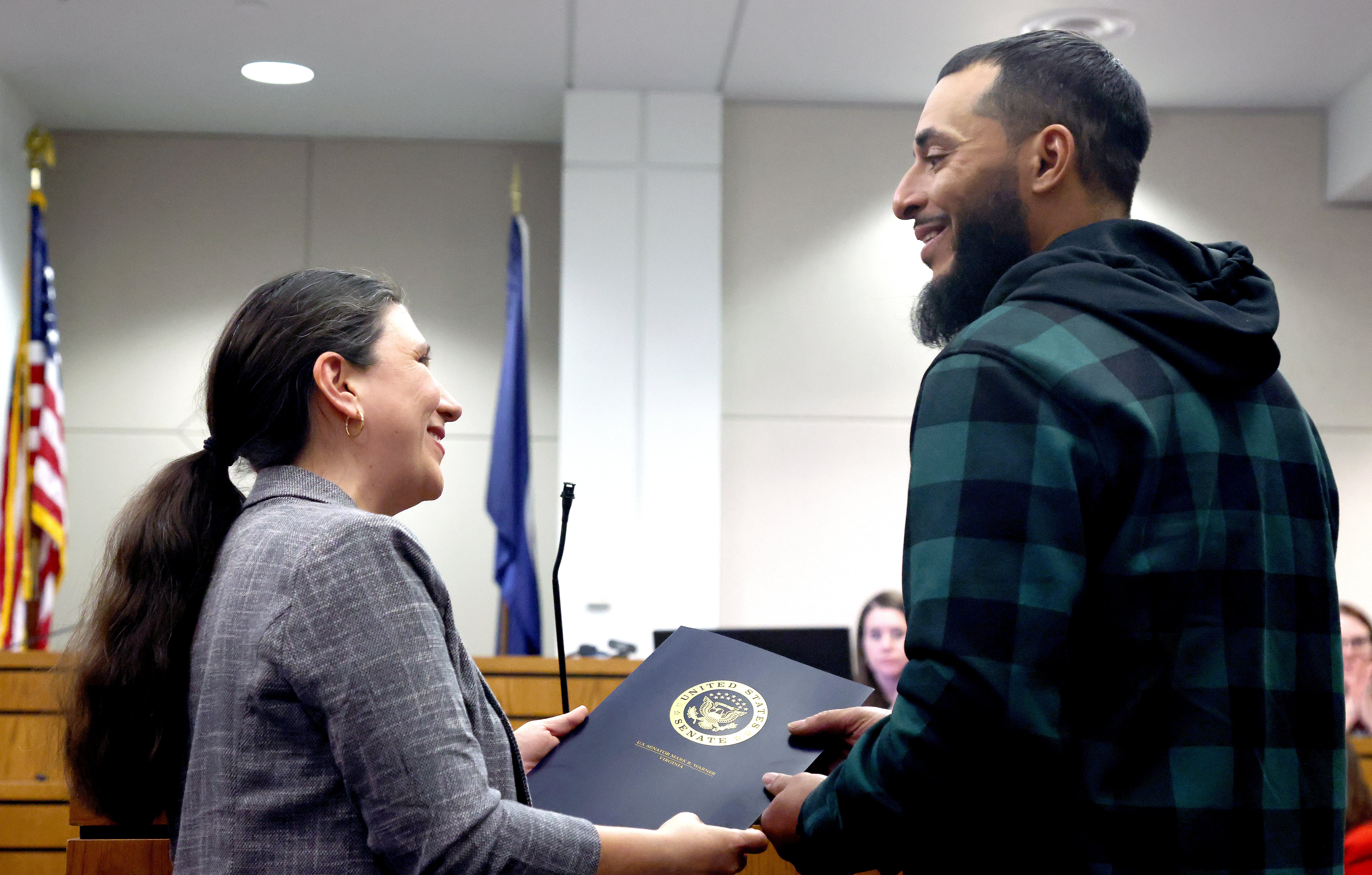Graduation Ceremony Celebrates Recovery and Redemption

The Greater Prince William Adult Recovery Court is transforming lives by helping people with substance abuse disorders who are facing felony charges achieve sobriety, stability and a second chance. Established in 2022, the program provides participants with an opportunity to reduce, or even dismiss, their sentences through a rigorous, court-supervised process focused on recovery and reintegration.
Participants in the program are required to attain sobriety, acquire stable housing, participate in restorative activities, secure and keep employment, and shift to more functional thinking patterns and behavior. The program combines accountability with support, requiring weekly drug screenings, regular court appearances and ongoing therapeutic engagement.
At a recent graduation ceremony held at the Prince William Judicial Center, graduate Jason Ohr was honored for completing the program. Presiding Judge Kimberly A. Irving, 31st Circuit Court, said Ohr was engaged and ready to help himself as soon as he entered the program.
“Jason Ohr was a unique person who came into drug court,” Irving said. “He came in not passively, but ready to take on the world. He took advice and he did what he needed to do. When there were bumps in the road, he handled them with grace.”
Ohr said he was happy that the program allowed him to mend relationships and thanked everyone involved for helping him succeed.
“When I got in this program, it took me a while to realize, but it was the best thing that happened to me,” said Ohr. “Today, I can say that my addiction is over, and I have regained things in my life. My family being proud of me again, my loved ones being proud of me again. It means the world to me.”
Keynote speaker Judge Robert P. Coleman, 31st Circuit Court, told the ceremony attendees that more than 4,000 courts nationwide have demonstrated their effectiveness in reducing crime and supporting recovery since 1989.
“The primary goal of treatment courts is not punishment,” Coleman told the gathering. “Research from the National Institute of Justice suggests that treatment courts utilizing best practice standards can reduce participant recidivism and drug use by up to 58 percent.”
The program offers measurable community benefits, including stronger families, safer neighborhoods and a return on investment for taxpayers, saving approximately $6,000 per participant.
“The opportunities recovery court provides to our participants is that of a resilient, stronger, determined and more enriched community,” Coleman said. “Our goal is to foster an environment conducive to promoting the ideal of living life to the fullest one day at a time.”
The Greater Prince William Adult Recovery Court is a collaborative effort among judges, public defenders, prosecutors, probation officers, law enforcement and behavioral health professionals. Together, they work to help participants address the root causes of substance use and reclaim their lives.
People interested in the Adult Recovery Court can contact Recovery Court Coordinator of Criminal Justice Services Sarah Allen at [email protected].
